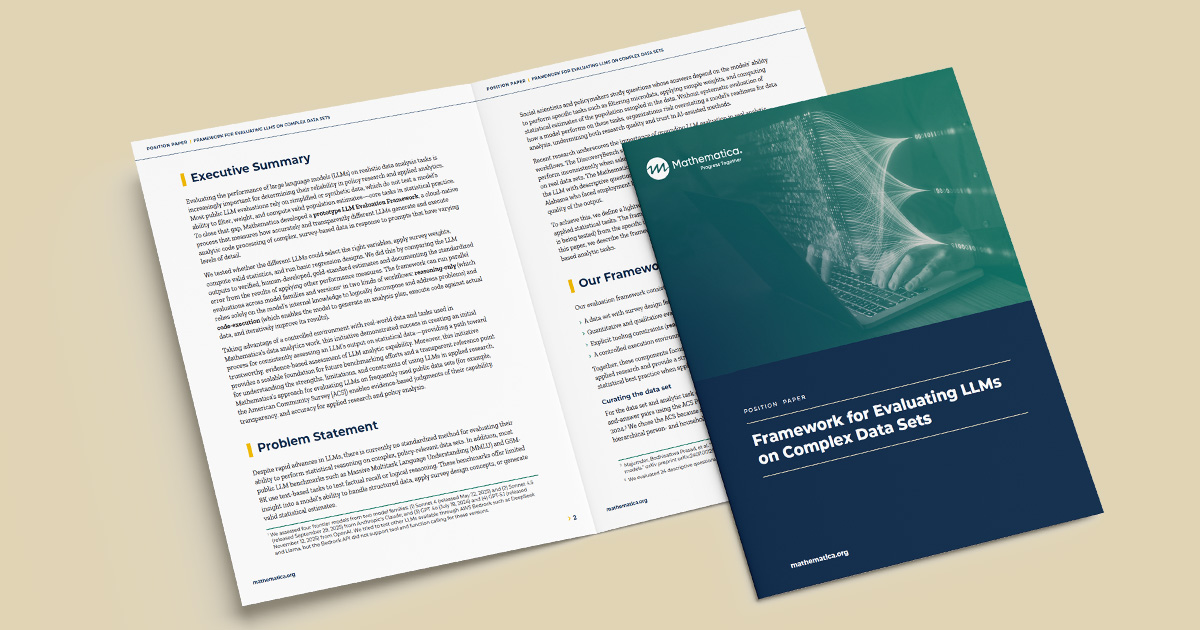Improving the Impact of Social Programs Through a Comprehensive Approach to Design and Evaluation
In The Oxford Handbook on Program Design and Implementation Evaluation, Anu Rangarajan gathers insights from a team of experts about how to incorporate evaluation approaches at every stage of a program’s life cycle and how doing so can lead to greater impact.
At this event, Rangarajan, notable contributors to the handbook, and other renowned experts discussed how program design and evaluation methods have evolved to meet changing needs and real-world examples of how these approaches have been used at each stage to maximize the chances of a program’s success. This event was co-sponsored by Mathematica and the Association for Public Policy Analysis & Management and is a valuable complement to the handbook for social science researchers, faculty, and students, as well as practitioners, policy analysts, and funders of social programs and evaluations.
Participants included:
- Emilie Bagby, director, international education, Mathematica
- Douglas J. Besharov, professor, University of Maryland School of Public Policy
- Melissa Chiappetta, senior education advisor, Latin America and the Caribbean, U.S. Agency for International Development
- Paul Decker, president and chief executive officer, Mathematica
- Anu Rangarajan, editor of The Oxford Handbook on Program Design and Implementation Evaluation and former senior vice president and director of climate change at Mathematica
- Michelle Sager, managing director for strategic issues, U.S. Government Accountability Office
- Michael Woolcock, lead social scientist, Development Research Group, World Bank
- Alix Zwane, chief executive officer, Global Innovation Fund

